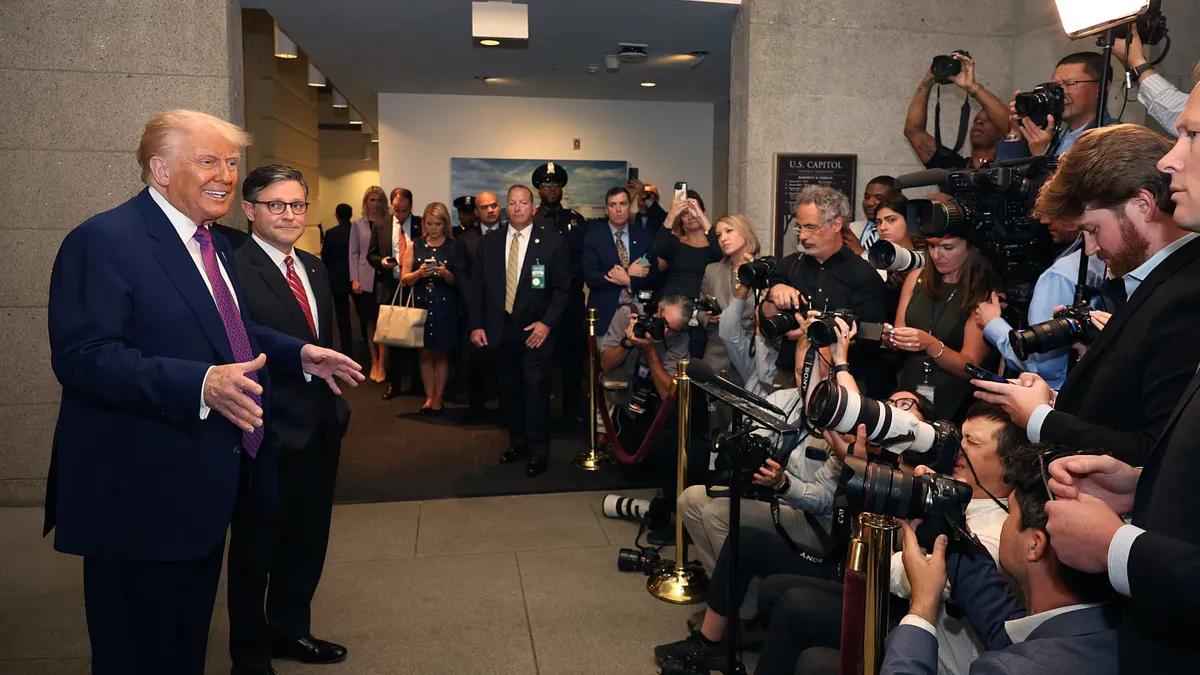
In recent weeks, financial markets have been rocked by a series of troubling headlines emerging from the White House. Just as the chaos surrounding tariffs began to settle — albeit temporarily, as the pause on reciprocal tariffs is still in play — new fears regarding the surging U.S. debt have triggered a broad sell-off across various markets. Analysts reported that President Donald Trump's recent tax bill is projected to add between $3 trillion to $5 trillion to the national debt, as indicated by a report from Reuters citing nonpartisan sources.
A fiscally strained United States means that investors are likely to demand higher returns for holding the country's debt obligations. This concern was reflected in the Treasury yields, which surged on Wednesday. The yield on the 30-year Treasury bond surpassed the 5% mark for the second time within the week, while the 10-year yield climbed to 4.61%, marking its highest level since February. Although increasing yields lead to declining bond prices, they also offer the prospect of higher returns with potentially lower risk, making stocks less appealing to investors.
Under the pressure of soaring Treasury yields, which translate into elevated borrowing costs for both consumers and companies, U.S. markets experienced a significant downturn on Wednesday. The S&P 500 index dropped by 1.61%, the Dow Jones Industrial Average fell by 1.91%, and the Nasdaq Composite decreased by 1.41%.
The situation is compounded by the looming threat of a U.S. debt crisis, as Moody's has issued warnings about the potential for a credit rating downgrade. Concerns persist that if President Trump's ambitious spending bill is approved, the U.S. deficit could expand further, perpetuating high Treasury yields and instability in the markets.
While U.S. markets faced challenges, other global markets exhibited mixed results. The pan-European Stoxx 600 index ended the day mostly flat, while the U.K.'s FTSE 100 showed a slight increase of 0.06% following reports of a spike in the country’s annual inflation rate, which rose to 3.5% in April from 2.6% in March. In a notable development, Bitcoin prices reached a new high, exceeding $109,857, breaking its previous record set in January.
In other significant news, OpenAI announced the acquisition of Jony Ive's startup, io, for approximately $6.4 billion in an all-equity deal. This acquisition marks OpenAI's entry into the hardware sector and highlights the growing belief in Silicon Valley that intelligent AI assistants may revolutionize the tech landscape.
Furthermore, Hinge Health successfully priced its IPO at $32 per share, reaching the upper limit of its expected range. This valuation places the company at around $2.6 billion, significantly lower than its private market valuation of $6.2 billion from October 2021. Hinge Health specializes in software that assists patients in managing acute musculoskeletal injuries and chronic pain.
On a different front, Etihad Airways from Abu Dhabi expressed confidence in navigating the challenges posed by Boeing's delivery delays. The airline is pressing forward with a major wide-body order and a comprehensive fleet overhaul, indicating a strong commitment to its partnership with the American aircraft manufacturer.